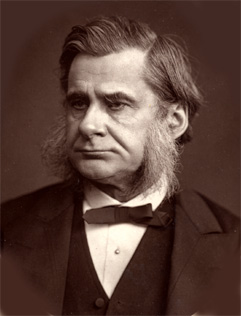I am trying to make a more conscious effort to make things in my life indelible. Mostly as an attempt to keep my self from regret, nostalgia, shame, and dissatisfaction. the internet, in its ephemeral hurricane tsunami splendor, has several ways to combat this. the ability to edit and delete posts, even deleting "profiles" etc. allows much of our interaction to be stricken from the record. At the same time, it makes documentation of our interactions infinitesimally easier. One might say, it makes us gods.
av·a·tar 

 /ˈæv
/ˈæv əˌtɑr, ˌæv
əˌtɑr, ˌæv əˈtɑr/ Pronunciation Key - Show Spelled Pronunciation[av-uh-tahr, av-uh-tahr] Pronunciation Key - Show IPA Pronunciation –noun
əˈtɑr/ Pronunciation Key - Show Spelled Pronunciation[av-uh-tahr, av-uh-tahr] Pronunciation Key - Show IPA Pronunciation –noun | 1. | Hindu Mythology. the descent of a deity to the earth in an incarnate form or some manifest shape; the incarnation of a god. |
| 2. | an embodiment or personification, as of a principle, attitude, or view of life. |
| 3. | Computers. a graphical image that represents a person, as on the Internet. |
of these, i think the one that starts with "Computers" is the least appropriate, mostly because it reduces the powerful process of embodiment and personification to the manifestation of "a graphical image".
Just like printed paper money is backed by gold, the internet is merely a representation of legal tender backed by humans. Our communication of "principle, attitude, or view of life" is present, even if it is limited to boxes (just like the one I am writing in now) for the space of creation. Where else in our lives can we reverse, edit, or cleanly remove the public trace of our actions? Why do we exercise that power? Shame? Selective memory?
The French Historian Pierre Nora said, "History is perpetually suspicious of memory and its true mission is to suppress and destroy it."
Similar to Thomas ("Darwin's Bulldog") Huxley, "The great tragedy of Science - the slaying of a beautiful hypothesis by an ugly fact."

In both instances the desired mentality is allowed to dominate through means slaying, suppression, and destruction. The facts are constantly at odds with what we want them to be. Oddly enough, the front lines of this battle are often not only turbulent, but silent, personal, and delusional. When history steps in, and it becomes time to pass these ideas onto the next generation, we can pass the desired result (idealized mentality), shed of its excruciating struggle to become pure.
Ever seen David Lynch's
Lost Highway? Bill Pullman's character is suspicious of cameras because he likes to remember things his "own way". Pierre Nora investigates this mentality and often uses French National Memory as his subject, where he is less interested in linear historical narrative of the events that actually occurred than in the processes that adopt the events into collective memory.
Histoire des Mentalités (history of mentalities)
"a history in multiple voices . . . less interested in causes than in effects; . . . less interested in 'what actually happened' than in its perpetual re-use and misuse, its influence on successive presents; less interested in traditions than in the way in which traditions are constituted and passed on." -from Realms of Memory
In
On Truth, by Harry G. Frankfurt, he says that "it is nearly always more advantageous to face the facts than to remain ignorant of them". He says the crime of lying is creating a false reality, alienating to the victim(s). "The victim of the lie is... shut off from the world of common experience and isolated in an illusory realm to which there is no path that others might find or follow."
On the first
Dial-A-Stranger, a radio show on
KPWR that pairs stranger's asking questions to strangers willing to provide answers, a question was, "would you rather be right, or happy." In general, people would much rather be happy with a lie, than incredibly unhappy with the truth. If we are happy under false pretenses, isn't that just as alienating as being a victim of a lie? I feel that the utmost happiness comes from being fully aware and connecting with people honestly.
So why not leave obfuscation and anonymity, embracing transparency and accessibility? Though this blog is now 5 posts old, I already want to delete things I said less than a week ago. Somehow I have convinced myself that it is a better practice of power to constantly want to delete something I said and deny myself, than to simply delete it and pretend it never happened.
And i still find it incredibly strange that our monetary value system is still based on shiny metal.




